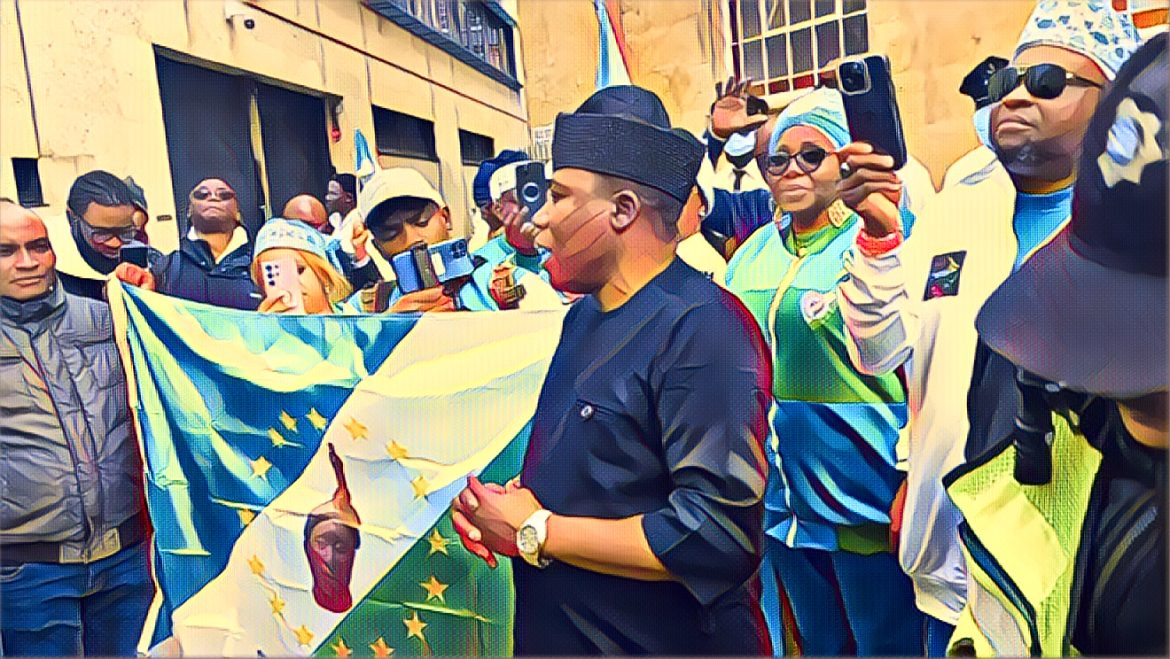KEY POINTS
- UK did not endorse Yoruba Nation petition, FG clarifies.
- According to the UK High Commissioner, the petition was received within an established practice of obtaining letters, but did not have government backing.
- The British government insisted that it remained neutral on Nigeria’s sovereign affairs.
The Federal Government has rejected claims that the UK endorsed a petition submitted by Yoruba Nation agitator, Sunday Adeyemo, who is popularly known as Sunday Igboho, for the creation of Yoruba nation.
British media reports have been focusing on the petition, delivered at 10 Downing Street, London, last week.
But in a statement released Tuesday by the Ministry of Foreign Affairs’ spokesperson, Ambassador Eche Abu-Obe said the reports were “highly misleading” and also clarified that the UK government did not endorse the petition.
British High Commissioner said in clarification
The British High Commissioner in Abuja was asked to explain. However, Ambassador Abu Obe said the High Commissioner had confirmed that this is an established practice, of receiving petitions at 10 Downing Street, but no endorsement of any kind from UK government, or the UK Parliamentary Petitions Committee.
“The High Commissioner quoted the UK government as saying ‘Normally the UK government is not interested in petitions on the sovereign affairs of another country’,” Abu Obe said.
UK-Nigeria relations were strong
The British High Commissioner also assured the Nigerian government that the UK will continue to hold a strong bilateral relations with Nigeria, based on mutual respect and cooperation in matters of common interest.
According to The Punch, earlier, Igboho’s spokesman, Olayomi Koiki, had confirmed that the petition had been delivered to UK Prime Minister Keir Starmer on behalf of Prof. Adebanji Akintoye, leader of Yoruba Nation movement.
Meanwhile, the Federal Government has rubbished claims the UK endorses or is involved with the petition.


